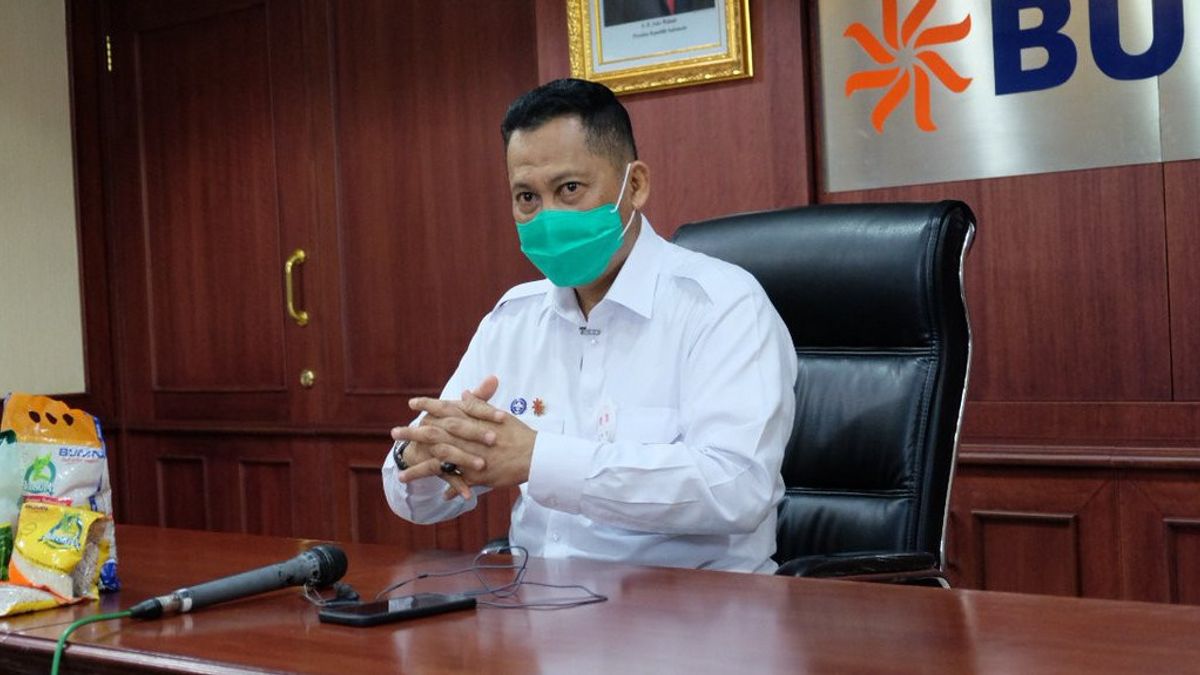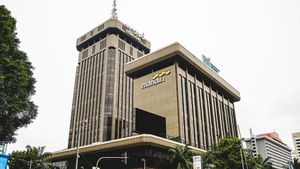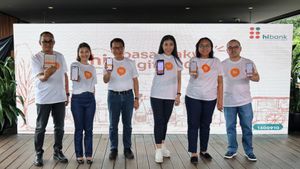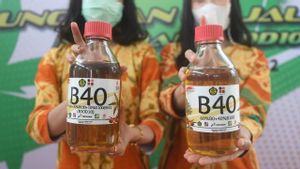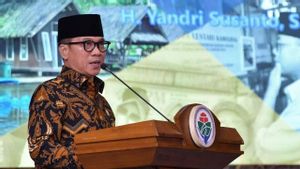JAKARTA - The President Director of Perum Bulog, Budi Waseso or Buwas, emphasized that the entry of 41,600 tons of imported rice into the country was not carried out by Bulog. He said that Bulog had not imported rice for the past three years.
"Indeed there are import data. I do not deny the import data. But the importers are not us, not from Bulog. BPS is not wrong because it is data taken from customs with existing permits. So BPS must be absolute, it can't be BPS fabricated and if we cross-check at customs, it's true," he said during a hearing with Commission IV of the DPR, Monday, August 30.
Budi suspects that the rice imports are carried out for special types of rice and carried out by several agencies or companies that have been assigned by the government. However, Buwas did not specify the agencies and companies in question.
Furthermore, Budi emphasized that until now his party was not aware of the issuance of a special rice import permit. In fact, previously the implementation of import permits was carried out by Bulog.
"Indeed, until now there has been no import assignment from us and we also do not carry out imports for rice. As for the data from BPS, after we investigated this was a special rice permit. Because it was given directly to several agencies, several companies that did the import," he said.
Furthermore, Budi revealed that importers of rice import permits, in this case broken rice, are 'played' by many importers. For example, the permit applied for is for broken rice but when it arrives in the country it is normal rice.
"Right now, if you see that the special rice contains Basmati rice, Japonica rice from Japan, then there are imported broken ones which are widely played. In the permit, broken rice is used for the flour industry. Even though we produce a lot of rice, we import it. what is now a lot of entry is not broken rice but normal rice. Because the difference in price when sold to us, has a plus profit value. That's why I didn't do it, "he said.
As is known, according to the Regulation of the Minister of Trade (Permendag) Number 01 of 2018, Bulog as the operator can carry out the procurement of rice. Where, procurement consists of imports of rice for general purposes or imports of other purposes.
Then, after obtaining import approval from the Ministry of Trade, Bulog can carry out the procurement of CBP through a rice absorption scheme from within and outside the country.
Imports for general purposes and grants can only be carried out by food companies, in this case Perum Bulog, for types of rice with a breakdown rate of above 5 percent to 25 percent with the HS code 10063099.
As for other purposes, it includes special rice such as glutinous rice, broken rice, Hom Mali rice with a maximum breakability level of 5 percent, as well as Japonica, Jasmine, Basmati rice, and others with a maximum breakage rate of 5 percent.
Then, special rice can be imported by companies with producer importer identification numbers (API-P) for industrial raw material needs and imports by SOEs for needs other than industrial raw materials.
Previously, Commission IV of the DPR in a hearing meeting with the President Director of Perum Bulog, Budi Waseso, questioned the issue of the 2021 long rice imports amid the Government's commitment to heavy imports due to adequate domestic production and stock.
The chairman of Commission IV of the DPR Sub-Department said that based on BPS data, there were 41,600 tons of rice imports during the January to July 2021 period with a value of 18.5 million US dollars.
Furthermore, the Sub-Department explained that the import was carried out without a permit issued by the Ministry of Agriculture. In addition, the incoming rice is supplied by several countries including Vietnam and Thailand.
"This is an obstacle, don't hide it," he said.
Recently, BPS released the import of rice as much as 356,286 tons. The imports were carried out from January to December 2020. From this data, the most imports came from Pakistan, which amounted to 110,516 tons or worth 41.51 million US dollars. Second, imports of rice from Vietnam with a total of 88,716 tons or the equivalent of 51.1 million US dollars. This figure is relatively more expensive than Pakistan.
Third, Thailand with imports reaching 88,593 tons. This figure is equivalent to 76.3 million US dollars or more expensive than imported rice from Vietnam. Meanwhile, other rice imports come from a number of countries such as Myanmar and India. Cumulatively, the value of rice imports throughout 2020 reached 195.4 million US dollars.
The English, Chinese, Japanese, Arabic, and French versions are automatically generated by the AI. So there may still be inaccuracies in translating, please always see Indonesian as our main language. (system supported by DigitalSiber.id)
